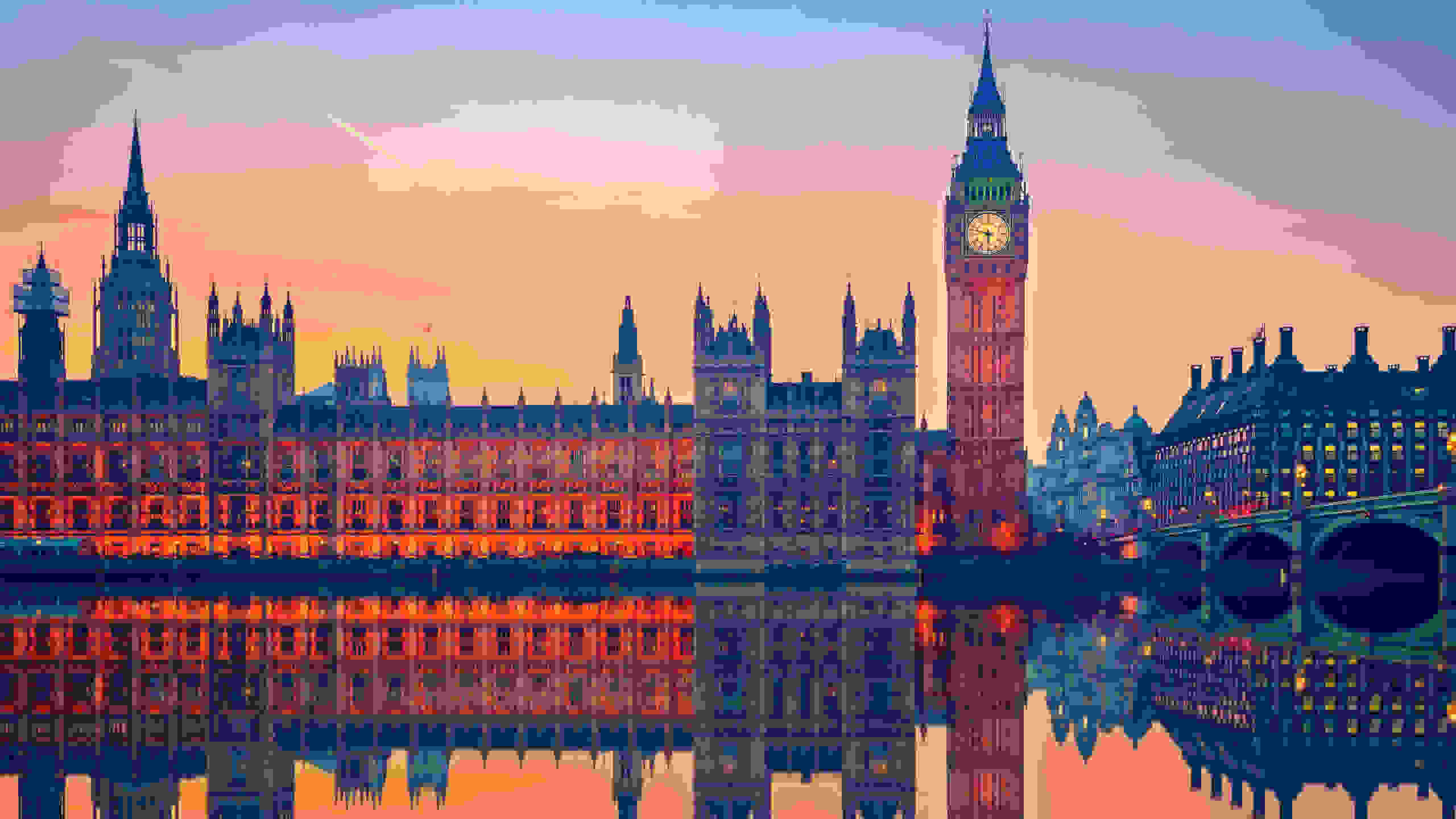Delegated Legislation Review

The problems with the delegated legislation system have long been known but Brexit and Covid-19 have illuminated them in stark terms. Our Review, funded by the Legal Education Foundation, will lay out a comprehensive plan to address them.
There are problems with both the delegation of powers in Bills and the scrutiny of the Statutory Instruments (SIs) that arise from those powers.
The powers given to Ministers to make delegated legislation are frequently too broad.
Too many Bills are now ‘skeleton’ Bills that contain powers rather than policy and so cannot be properly scrutinised by Parliament.
The boundary between what should go in primary legislation and what should go in delegated legislation is blurred.
When Parliament accepts controversial powers in a Bill, it creates a precedent that makes it politically easier for the government to argue in favour of taking similar powers in subsequent Bills – creating a ‘normalisation’ or ‘ratchet’ effect.
Broad powers can be used in the future in unexpected ways that Parliament did not anticipate at the time it granted them.
‘Henry VIII powers’ – which enable Ministers to amend or repeal primary legislation by SI – are common, despite their potential for serious constitutional implications.
There is no sensible correlation between the content of an SI and the scrutiny procedure to which it is subject.
Parliament has no power of amendment, and the risk of an SI being rejected is negligible.
Government control of the House of Commons agenda restricts MPs’ ability to secure debates on SIs of concern.
Scrutiny procedures are superficial and often a waste of time, particularly in the House of Commons.
There is no penalty for poor-quality Explanatory Memoranda and other supporting documentation.
The system and its terminology are confusing and overly complex.
Reform proposals have been made over the years by a range of parliamentary committees. Despite this, the essential architecture of the system has remained largely unchanged, particularly in the House of Commons, since the Statutory Instruments Act was passed in 1946.
Delegated legislation has recently found itself at the centre of contentious political debates, not least around Brexit and Covid-19. And it will remain the principal legislative vehicle for delivering the government’s agenda in critical policy areas in the coming years. Delegated legislation is not going to fade again into the background.
New Acts for agriculture, customs, fisheries and immigration are replete with broad delegated powers. The same seems set to apply to further major Acts still to reach the statute book, on the environment, healthcare, borders, subsidies and online harms, for example. Trade agreements will require implementation via SI. And plans for regulatory reform, and the review of retained EU law, herald the prospect of more legislation and a further raft of SIs.
The parliamentary scrutiny process for delegated legislation is thus poised to be an ongoing focus of political controversy and constitutional concern.
We believe that delegated legislation is a necessary feature of modern governance: it is not necessary, possible or even desirable to make legislative changes solely via primary legislation. Since we are to have delegated legislation, it is essential that it is carefully prepared, properly evidenced, and subject to meaningful scrutiny.
Help parliamentarians to ‘sort the wheat from the chaff’ and so focus their time and scrutiny on those SIs that matter most, legally and politically.
Enable today’s parliamentarians, rather than an Act passed sometimes years ago, to decide on the scrutiny process that applies to a Statutory Instrument.
Enhance and better deploy the resources available to parliamentarians, particularly MPs, to support their scrutiny.
Bring the rules around consultation and publication of SIs into the digital age, including through a new Statutory Instruments Act.
Benefits for Government
Better management of the SI production process and eased pressure on resources.
Improved relations with both Houses of Parliament through a more constructive scrutiny process.
Reduced prospect of judicial review. The Faulks Review of judicial review noted that respect by judges for Parliament was “rendered easier where there is evidence of real parliamentary scrutiny”.
Benefits for Parliament
A more responsive scrutiny process that better enables MPs to represent their constituents’ concerns.
Better use of MPs’ time so that it is no longer wasted in ineffectual Delegated Legislation Committees.
Greater access to expert advice and support.
Enhanced reputation. Reform would send a powerful message about the health of the political system and the effectiveness of our MPs.
Benefits for the public
Better law: improving the quality of SIs is in everyone’s interest. Delegated legislation is the ‘law of everyday life’; mistakes can have a devastating impact.
Better scrutiny procedures alone cannot fix a deficient policy process, but they can enhance the prospect of getting legislation that is “necessary, effective, clear, coherent and accessible”, which the Office of the Parliamentary Counsel describes as the classic tests of good law.
On 2 November 2021 we launched the Delegated Legislation Review to an audience of MPs, Peers and constitutional experts. The event - which included two panel discussions with Members from across the political spectrum and a keynote address by Steve Baker MP - unpacked the problems with the delegated legislation system and explored avenues for reform.
Panel 1: Reflections on current scrutiny procedures
Speakers: Thangam Debonnaire MP, Patrick Grady MP and Mark Harper MP
Chair: Dr Ruth Fox, Director, Hansard Society
Panel 2: The case for reform
Presentation: Dr Ruth Fox, Director, Hansard Society and Dr Tom West, Delegated Legislation Review Manager, Hansard Society
Keynote address: Steve Baker MP
Respondents: Dame Angela Eagle MP and The Rt Hon the Lord Judge
Chair: Murray Hunt, Director, Bingham Centre for the Rule of Law
Throughout 2022, we will be holding a series of public and private events to explore the key issues and publishing regular briefings, discussion papers and reports setting out our latest ideas, research and data analysis.
We welcome the views of parliamentarians, officials and ‘end-users’ of delegated legislation on some of the key questions we are grappling with. For example:
How can reform help government better manage and resource the delivery of its SI programme?
Where should the boundary lie between what goes in primary and what goes in delegated (or secondary) legislation?
Should Parliament be able to amend delegated legislation?
What provisions should be included in a new Statutory Instruments Act?
What resources and support would enable parliamentarians to scrutinise SIs more effectively?
Could a reformed scrutiny process facilitate more law-making through delegated legislation?
If you have ideas about ways in which the system could be improved or have evidence about how the delegated legislation system works in practice – good or bad – then please do get in touch. We want to hear from you. Please contact Dr Tom West, Delegated Legislation Review Manager (tom.west@hansardsociety.org.uk).

The Baroness Andrews OBE
Member of the House of Lords (Labour)
Chair, Common Frameworks Scrutiny Committee (2020-)
Member, Delegated Powers & Regulatory Reform Committee (2018-22) and Secondary Legislation Scrutiny Committee (2014-17)
Parliamentary Under-Secretary, Department for Communities & Local Government (2006-09)

Sir David Beamish
Trustee of the Hansard Society (2018-)
Clerk of the Parliaments, House of Lords (2011-17)
Former Private Secretary to the Leader of the House of Lords and Government Chief Whip
Winner, BBC Mastermind (1988)
Vice-Chair, Southwark Diocesan Board of Finance and Honorary Steward at Westminster Abbey

Kirsty Blackman MP
Member of Parliament for Aberdeen North (SNP)
Member, Procedure Committee (2019-2022)
Member, European Statutory Instruments Committee (2018-)
SNP Deputy Westminster Leader (2017-2020)
Non-Executive Director, New City Agenda (2017-)

Dame Angela Eagle MP
Member of Parliament for Wallasey (Labour)
Member, Procedure Committee (2020-)
Member, European Statutory Instruments Committee (2018-19)
Shadow Leader of the House of Commons (2011-15)
Minister in four government departments (1997-2010)

Paul Evans CBE
Hansard Society member
Clerk of Committees, House of Commons (2016-20)
Editor, Essays on the History of Parliamentary Procedure (Bloomsbury: Hart Publishing, 2017)
Author, Handbook of House of Commons Procedure (2004)
Visiting Professor, King's College London and University of Lincoln

Sir Jonathan Jones QC
Treasury Solicitor and Permanent Secretary of the Government Legal Department (2014-20)
Former legal adviser to HM Treasury, Department for Education and the Home Office
Former Director General of the Attorney General's Office
Senior consultant, Linklaters (2021-)
Honorary Professor, Durham Law School (2021-)

Professor Jeff King
Professor of Law, University College London
Visiting Professor, Faculty of Law, Oxford University
Legal adviser, House of Lords Constitution Committee (2019-21)
General editor, Oxford Compendium of National Legal Responses to Covid-19

The Lord Lisvane KCB DL
Member of the House of Lords (Crossbench)
Member, Secondary Legislation Scrutiny Committee (2019-)
Member, Delegated Powers and Regulatory Reform Committee (2015-19)
Clerk of the House and Chief Executive, House of Commons (2011-14)
Co-author, How Parliament Works, (Routledge)

Professor the Lord Norton of Louth
Member of the House of Lords (Conservative)
Member, Constitution Committee (2015-19)
Member, Secondary Legislation Scrutiny Committee (2012-14)
Director of Studies, Hansard Society (2002-2020)
Professor of Government and Director of the Centre for Legislative Studies, University of Hull (1986-)

The Rt Hon the Baroness Taylor of Bolton (Chair)
Member of the House of Lords (Labour)
Chair, Hansard Society (2019-)
Chair, Constitution Committee (2017-22)
Member of Parliament for Bolton West (1974-83) and Dewsbury (1987-2005)
Leader of the House of Commons (1997-98)
Government Chief Whip (1999-2001)
Read our November 2021 report Delegated legislation: the problems with the process
Download our launch leaflet
Watch the launch event
Watch our joint event with the Bingham Centre on ‘Parliamentary Scrutiny, Evidence and the Rule of Law: Lessons from the pandemic and beyond’
See our key content on delegated legislation
Visit our ‘Making better law’ page for more content on this theme
